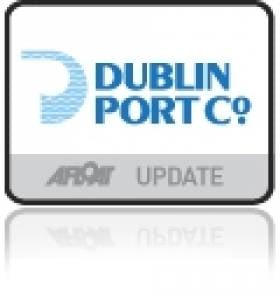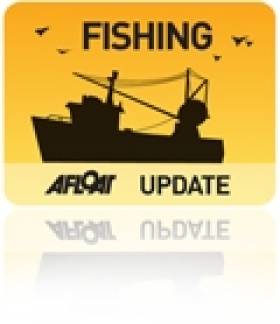Displaying items by tag: IWT
New €1.5m Rail-Spur for Dublin Port
The minister welcomed "the important investment by Dublin Port Company in its rail network. It will further enhance the attractiveness of the port as a destination for rail-based freight. The project represents a commitment on the part of Dublin Port Company and Iarnród Éireann to customers who want to move goods by rail".
The project took six months to complete and the public private partnership involved Dublin Port Company, Iarnród Éireann and the first customer of the new facility, International Warehousing and Transport (IWT).
IWT is a privately owned Irish logistics company, which already operates freight-trains to Ballina that are expected to increase from 4 to 5 trains per week in each direction as a result of this investment. The rail-operator believes that the service will save up to 5.5million road kilometres annually and reduce CO2 emissions by up to 2,750 tonnes.
The Irish Exporters Association also welcomed the development of the IWT freight operation at the new facility, where increased frequency in services will enhance Ireland's contribution to the European Union's modal shift aspirations from road to rail.
The Common User Terminal is also open to other shipping companies. Existing clients using the lo-lo container terminal operated by Burke Shipping Group through its subsidiary Portroe Stevedores are C2C Lines, APL, Coastal Containers, Evergreen, Gracechurch and OOCL . The terminal also has a ro-ro berth facility where CLdN /Cobelfret operate from on routes to Belgium and The Netherlands.
In addition to the Dublin-Ballina service the port exports 400,000 tonnes of lead and zinc concentrate from the freight customers Boliden/Tara Mines with 15 trains per week. The facility at Alexandra Basin Jetty is regularly served by vessels from Arklow Shipping Ltd, where the 2011 newbuild Arklow Field (2,998 tonnes) is currently berthed.
- Dublin Port
- Dublin Port Company
- Arklow Shipping Ltd
- Irish Exporters Association
- Port of Dublin
- Ports and Shipping News
- IEA
- Minister for Transport
- Ocean Pier
- Irish Rail
- Iarnrod Eireann
- Portroe Stevedores
- Dublin Port news
- IWT
- ASL
- Leo Varadkar T.D.
- Port of Dublin news
- Railfreight
- International Warehousing and Transport
- Alexandra Basin East
- Common User Terminal
- Burke Shipping Group
- Clnd Cobelfret
- Boliden
- Tara Mines
- Arklow Field
- Dublin Shipping
- Lead mines
- Zinc mines
- Irish Railways
- Dublin Port railhead
IWT Welcomes EU Ban on Fish Discards
The Irish Wildlife Trust has welcomed the proposed EU ban on discarding fish as part of the Common Fisheries Policy.
The organisation said it was a "vital step" towards "restoring the ecological balance in Irish seas".
IWT chairman Pádraic Fogarty said: “Discarding is tremendously wasteful and is causing untold damage to our marine ecosystems."
EU fisheries commissioner Maria Damanaki has described the practice of discarding as “unethical, a waste of natural resources and a waste of fishermen’s effort.”
The proposals to ban discards have come after a high-profile campaign against the practice of fishermen dumping dead fish, through which it emerged that half of all fish caught in the North Sea are thrown back.

























































